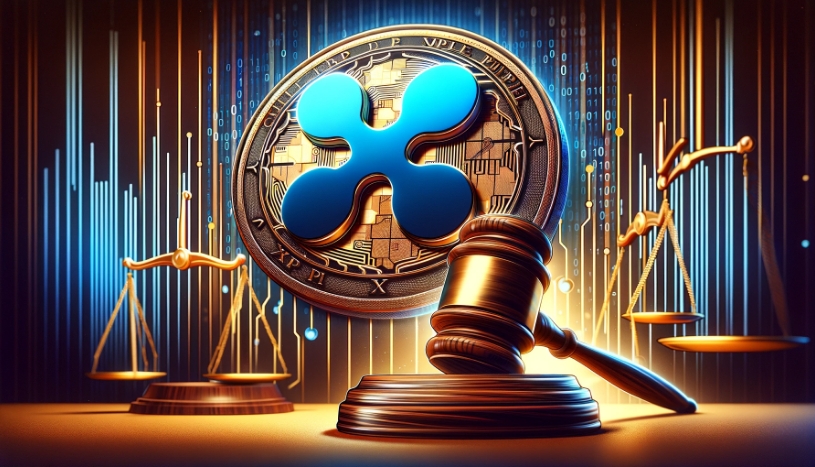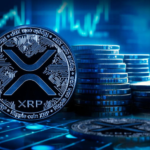Introduction to the xrp Lawsuit
The cryptocurrency world is no stranger to volatility and drama, but the ongoing XRP lawsuit news has taken things to a whole new level. As Ripple Labs battles it out with the U.
S. Securities and Exchange Commission (SEC), all eyes are on how this legal showdown could reshape the landscape of digital assets. With billions at stake, both in terms of market capitalization and regulatory clarity, every twist and turn in this case sends ripples through the crypto community. What does it mean for investors? How will it shape future regulations? Let’s dive into the details surrounding this pivotal moment in XRP lawsuit news that could alter the trajectory of cryptocurrencies as we know them.
Background on Ripple and XRP
Ripple was founded in 2012, aiming to revolutionize the way money is transferred globally. Its focus lies on facilitating cross-border payments with speed and efficiency.
XRP, Ripple’s native digital asset, serves as a bridge currency for transactions between different fiat currencies. This innovation reduces the cost and time associated with traditional banking systems.
Unlike Bitcoin or Ethereum, which prioritize decentralization, Ripple emphasizes partnerships with financial institutions. Major banks and payment providers have adopted its technology for quicker settlements.
The unique consensus mechanism of XRP allows for fast transaction validation without heavy energy consumption. This feature positions it as an eco-friendly alternative in the cryptocurrency space.
The blend of technology and strategic partnerships has positioned Ripple as a key player in transforming global finance dynamics. Yet this journey hasn’t been without challenges or controversies.
The SEC’s Allegations Against Ripple and XRP
The SEC has leveled serious accusations against Ripple Labs. They claim that the company conducted an unregistered securities offering through the sale of XRP.
According to the SEC, XRP is classified as a security. This designation implies that Ripple should have registered its sales with regulatory authorities. The lack of registration raises significant legal questions about compliance and transparency in their operations.
Ripple maintains that XRP functions primarily as a digital currency. They argue it facilitates transactions rather than acting like traditional securities. This divergence in viewpoint forms the crux of the dispute between Ripples and regulators.
Additionally, the lawsuit has sparked debates within the cryptocurrency community regarding classification standards for digital assets. Clarity on these matters could drastically reshape how cryptocurrencies are treated under U.
S. law moving forward.
Impact of the Lawsuit on the Cryptocurrency Market
The XRP lawsuitnews has sent ripples through the cryptocurrency market, creating a wave of uncertainty. Investors have watched closely as the SEC’s allegations unfolded, leading to significant price fluctuations.
Many cryptocurrencies experienced volatility in response to news surrounding Ripple. Some traders moved their investments to more stable assets, fearing potential regulatory crackdowns.
Exchanges also reacted by delisting XRP or restricting trading options for it. This move sparked discussions about compliance and risk management within the broader crypto community.
While some projects thrived amid this turmoil, others struggled under scrutiny. Innovations slowed down as developers shifted focus toward ensuring regulatory adherence rather than advancing technology.
In an environment where consumer confidence is crucial, these developments may shape future investment strategies across digital assets. As stakeholders navigate uncharted waters, every announcement could influence market sentiment profoundly.
Response from Ripple and XRP Supporters
Ripple and XRP supporters have rallied strongly in response to the ongoing lawsuit. Many believe that the SEC’s allegations are unfounded, arguing that XRP functions more like a currency than a security. This viewpoint is backed by individuals who see Ripple’s technology as revolutionary.
Community members have taken to social media platforms, sharing their thoughts and rallying support for Ripple. They emphasize the potential of XRP in streamlining cross-border payments.
Additionally, numerous petitions have surfaced, urging regulatory clarity and defending Ripple’s business model. The fervor among supporters reflects a strong belief in the long-term vision of digital assets.
Some prominent figures within the crypto community have also voiced their opinions on various forums, highlighting instances where other cryptocurrencies faced similar scrutiny without severe repercussions. These discussions contribute to an evolving narrative around regulation and innovation within this space.
Potential Outcomes of the Lawsuit
The XRP lawsuit has drawn significant attention, and the potential outcomes could reshape the landscape of digital assets. A favorable ruling for Ripple might affirm that XRP is not a security. This could pave the way for increased institutional adoption and investment.
On the flip side, if the SEC wins, it may create a chilling effect across the cryptocurrency market. Other projects could face scrutiny as regulators tighten their grip on what constitutes a security.
Moreover, there’s speculation about settlements. A compromise could lead to regulatory clarity while allowing Ripple to continue its operations without severe penalties.
Each possible outcome holds implications not just for Ripple but also sets precedents impacting other cryptocurrencies. The industry watches closely as these developments unfold, waiting for insights that will influence future regulations in this rapidly evolving space.
Future Implications for Digital Assets and Regulations
The outcome of the XRP lawsuit news could reshape the regulatory landscape for digital assets. If Ripple prevails, it may set a precedent that empowers other cryptocurrencies and blockchain projects to operate with greater confidence.
Conversely, if the SEC wins, we might see stricter regulations enforced across the industry. This could lead to increased scrutiny on many tokens currently in circulation.
Moreover, clarity regarding what constitutes a security will be vital for future innovations in crypto. Developers and investors alike are watching closely as this case unfolds.
Regulatory frameworks need to evolve alongside technology. How authorities approach digital assets now will likely influence market dynamics for years to come.
Increased transparency and clearer guidelines could foster more institutional investment. The balance between innovation and regulation remains delicate but essential for sustainable growth within this space.
Conclusion
The ongoing XRP lawsuit news continues to captivate the cryptocurrency community and beyond. As Ripple navigates its legal battles with the SEC, the implications stretch far beyond a single token. The outcome of this case could redefine how digital assets are regulated in the United States, setting precedents that may influence future legislation.
Ripple’s fight against regulatory scrutiny highlights larger conversations about transparency and compliance within the crypto industry. Supporters argue for fair treatment and clarity on what defines a security versus a utility token. Each development in this legal saga offers insights into how financial regulators view digital currencies.
As we watch these events unfold, investors and stakeholders must remain informed and vigilant. The ripple effects of this lawsuit will likely shape market dynamics, investor confidence, and innovation in blockchain technology moving forward.
With evolving regulations on the horizon, it is crucial for all involved to understand both their rights and responsibilities as participants in this new digital economy. The XRP lawsuit stands at a crossroads that could either bolster or hinder growth for countless projects striving to make their mark in this promising sector.


